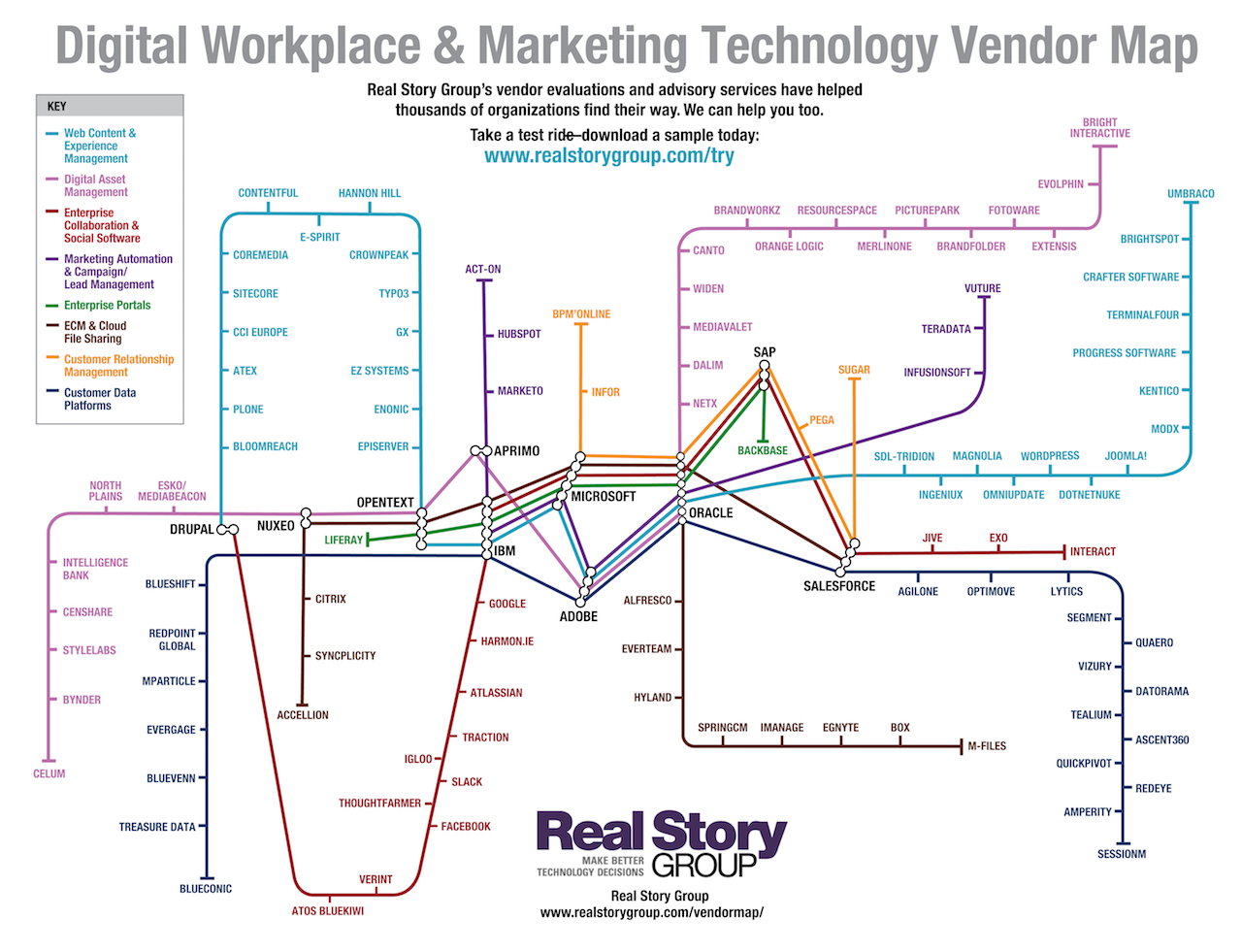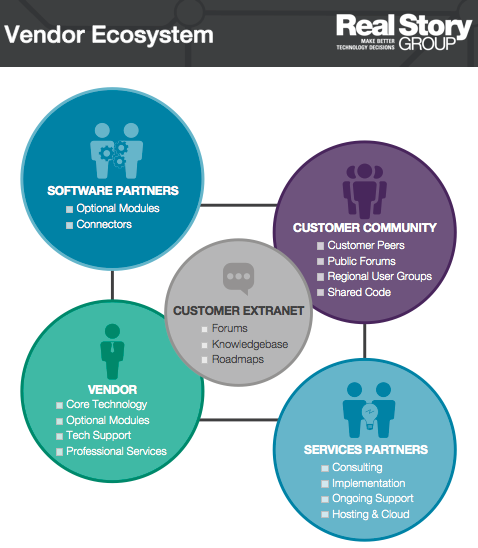Intel, Telligent, Jive, and the Social Software Marketplace
This is a somewhat rambling post about the enterprise social software marketplace, but there is a thread that runs through it, and that is the role of Intel.
First, earlier this year Intel quietly discontinued its support for "SuiteTwo," a social computing bundle that the company announced with some fanfare in 2006 and developed in collaboration with SpikeSource. The idea was to provide blogs, wiki, RSS, and other services through a single suite that incorporated products from Moveable Type, SocialText, and others. It was a tall order. You can integrate software products one time in one environment, but it's devilishly hard to keep them synched in a packaged way for multiple environments over time. On the plus side, the strategy recognized that most customers do indeed want to combine best-of-breed tools. But still, SuiteTwo never really took off. .
SuiteTwo was initially underwritten by Intel's separate venture arm. You may recall that last year, Intel Capital also made a hefty $20M investment in community software supplier Telligent.
Telligent also lists Intel as a customer, though it's not clear exactly where Intel employs the platform. I found an impressive manifesto on internal social computing written by Intel exec Laurie Buczek -- the link courtesy of Lawrence Liu of Telligent, who promises greater things from that relationship.
Interestingly, you'll find Buczek's blog post in a "Communities" subsite of Intel.com that actually runs on Jive Clearspace, a competitor to Telligent. What this should tell you? That large companies at the forefront of enterprise social computing -- like Intel, Dell, and others -- routinely turn to multiple suppliers for different types of internal and external communities. This may have something to do with inter-departmental politics and silos, but I think it actually makes sense: different vendors in this marketplace target different scenarios and will therefore be better suited to different business objectives. For example, Telligent sees some internal implementations, but is known mostly for its external-facing community implementations, while Jive's Clearspace can and does get implemented externally, but is mostly known for its behind-the-firewall implementations. You the buyer should not assume that one size fits all.
And what about Telligent's niche? As Enterprise Social Software & Collaboration Report subscribers know, Telligent revolves primarily around forum services, and therefore addresses the kind of support-oriented community scenarios that "white label" vendors target aggressively. The difference, however, is that Telligent is an on-premise product, whereas the white-label vendors are all hosted, SaaS solutions. Of course there are pros and cons to both approaches. I don't have any inside dope on any of Intel's implementations, but I suspect their Telligent-powered sites will get heavily customized in ways that might not be possible with a SaaS-based supplier.
Meanwhile, back at Telligent headquarters... As Jive did earlier, Telligent recently announced some layoffs. Somehow I think if the company had not taken any VC funding, they might not have had to do this. Like EMC, the move may be more defensive than anything else. I won't second-guess Telligent's business decisions in this economy, and I still don't think this is a bellwether for decline in this market segment. There are too many enterprises still looking to invest in social computing -- both within and beyond the firewall -- but we'll stand by our earlier prediction that many of those investments this year will remain tactical in nature. And with newish technologies like community servers, that's not a bad thing.







